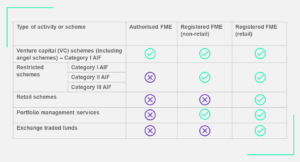In recent years, India’s financial landscape has experienced a significant transformation towards innovative investment avenues driven by a combination of changing investor preferences and emergence of new financial instruments. Among such avenues, alternative investment funds (AIFs) have garnered significant traction, especially in India’s first International Financial Services Centre (IFSC) within Gujarat International Finance Tec-City (GIFT City). GIFT IFSC represents a strategic vision to position India as a global financial hub, particularly in the realm of fund management.
In this conversation between IQ-EQ’s Khushboo Chopra and Price Waterhouse & Co LLP’s Nehal Sampat, we delve into the evolution of fund management in GIFT IFSC, exploring the opportunities it presents for fund managers and investors both domestically and internationally.
Khushboo Chopra (KC): Nehal, thank you so much for joining me to discuss the evolving landscape of India’s maiden IFSC. For anyone who isn’t familiar with it, could you start by providing a quick overview of GIFT IFSC and its relevance in the Indian market?
Nehal Sampat (NS): Thank you for having me, Khushboo. The genesis of GIFT IFSC lies in the Government’s “onshoring the offshore” initiative. Traditionally, India has been an importer of financial services and there are many “India focused” financial services, which have been rendered from offshore financial centres. GIFT IFSC was conceptualised with an objective of encouraging such financial services to be rendered from India, and to build a robust ecosystem for international finance and financial services within India’s borders. I may add that entities in the IFSC are regarded as non-resident from an exchange control regulations perspective, making it akin to setting up entities outside India.
GIFT IFSC currently ranks 46th in the Global Financial Centres Index and is among the top 15 financial centres deemed likely to gain prominence in the coming years. This validates the Government’s initiative to develop GIFT IFSC into a world-class financial hub.
In fact, the vision of the Government and the International Financial Services Centres Authority (IFSCA) has broadened into GIFT IFSC actively contributing to the aspiration of Viksit Bharat 2047 (which aims for India to become a developed nation by 2047). This would be by way of positioning India as a leading global financial hub, attracting global investments and enhancing the nation’s presence in global markets.
KC: I do see many asset managers and funds being set up in GIFT IFSC. What kind of asset managers are establishing themselves in the IFSC and which types of fund are gaining more traction?
NS: Your observation is spot on. As of 31 December 2024, 750+ entities were registered with IFSCA, of which almost half are from the asset management space (being fund managers and funds). To give you a sense of scale, 200+ funds have been registered with IFSCA, which have raised over US$15 billion in commitments. These commitments have been raised by different types of asset managers across different types of investment strategies / asset classes.
If I may touch upon the regulatory framework before responding to your questions, IFSCA introduced the Fund Management (FM) Regulations in May 2022 and updated them very recently. The FM Regulations were formulated after considering international best practices and adopting a risk-based approach. They seek to regulate different types of fund manager (and through them, funds) in a single, comprehensive framework.
The FM Regulations classify fund management entities (FMEs) into three distinct categories based on the activities they intend to undertake, as tabulated below:

Currently, most FMEs are registered as “non-retail FMEs” and the majority of the funds set up in GIFT IFSC are “restricted schemes”, especially Category III AIFs. Recently, there has been a surge in “outbound funds” raising funds from resident Indians for overseas investments and even retail schemes are getting launched now.
KC: What are the key drivers fueling this growth of funds and fund management entities in the IFSC?
NS: That’s a great question! GIFT IFSC offers a blend of regulatory, operational and tax advantages, making it an attractive destination for funds and fund managers. Let’s explore the primary drivers that make the IFSC stand out:
Regulatory and operational advantages
- Single-window clearances and a prompt approval process along with a light-touch, principles-based regulatory framework
- Ability to set up 100% Non-Resident Indian (NRI) / Overseas Citizen of India (OCI) owned inbound funds investing in India as foreign portfolio investors (FPIs)
- Flexibility to set up funds with concentrated portfolios and higher leverage
- Ability for unlisted Indian entities to undertake portfolio investments
- Lower operational costs compared to some of the leading overseas financial centres
- Availability of local talent and ease of managing funds/FMEs from India
Tax incentives
- 100% income tax exemption for FMEs for 10 years
- Perpetual exemption for gains arising from debt securities, derivatives and units in mutual funds for non-resident investors in funds, coupled with certainty in taxation as compared to offshore structures
- Reduced tax rate of 10% on dividends and interest income
- Provisions for tax neutral relocation of offshore funds to GIFT IFSC
- Goods and Services Tax (GST) exemption on fees
KC: Very interesting, and we’ll pick up many of these threads in more detail as we move along. Before we do, you mentioned that IFSCA has recently updated the FM Regulations. Any interesting takeaways from the revised regulatory framework?
NS: Absolutely. The IFSCA is dedicated to developing the IFSC into a preferred global destination, and part of this effort involves making the FM Regulations future-ready. In August 2024, they released a consultation paper focused on three main areas: (i) enhancing ease of doing business, (ii) providing additional safeguards, and (iii) clarifying certain positions. Based on the feedback received from market participants, the IFSCA notified the FM Regulations 2.0 in February 2025. Some of the key changes in the framework are:
Lower entry barriers
- The minimum corpus of schemes has been reduced from US$5 million to US$3 million
- Open-ended schemes are now permitted to commence investment activities with a corpus of US$1 million, with an extended period of 12 months to achieve the corpus of US$3 million
- FMEs and their associates are allowed to invest up to 100% in non-retail schemes, provided that the FME, associates and their ultimate beneficial owners are non-residents
- The minimum investment size for portfolio management services (PMS) clients has been reduced from US$150,000 to US$75,000
Key Managerial Personnel (KMP) requirements for FMEs
- An additional KMP is required for FMEs with assets under management of at least US$1 billion
- The educational qualification and work experience requirements for the Principal Officer and Compliance Officer have been relaxed
Other changes
- Conditions for fund of funds schemes have been eased
- FMEs now have the flexibility to open branches or representative offices in other jurisdictions for marketing and client services
KC: Moving to fund structures, what are the typical fund structures in GIFT IFSC for public market funds? Can IFSC fund managers manage foreign funds from the IFSC?
NS: As tabulated above, FMEs can launch AIFs and retail schemes in the IFSC, specifically aimed at raising monies for investment in public markets. Within AIFs, public market funds are usually launched as Category III AIFs. These funds are required to obtain FPI registration from the Securities and Exchange Board of India (SEBI), allowing them to invest in Indian capital markets like any other FPI. Interestingly, many asset management companies have launched fund of funds schemes in GIFT IFSC such that the IFSC funds act as feeder funds investing in Indian mutual fund schemes. These fund of funds structures can potentially mitigate India taxation for non-resident investors in Indian capital markets, with exemptions available for Indian mutual funds, IFSC funds (on gains on redemption of units of Indian mutual funds) and for investors in IFSC funds (on income distributed from the IFSC funds).
As regards your question on managing foreign funds, the FM Regulations allow FMEs to manage offshore funds from GIFT IFSC. This structure is becoming very topical given the recent change in the tax law wherein one of the “showstopper” conditions of onshore fund management safe harbour rules (with respect to monitoring of indirect resident Indian holdings in an offshore fund) has been omitted.
KC: You mentioned 100% NRI funds. How does the IFSC as a jurisdiction appeal to NRIs and OCIs?
NS: That’s a great topic to delve into, Khushboo. NRI inflows are pivotal for us, especially when FPIs have been withdrawing monies from Indian capital markets lately. NRIs and OCIs can invest in offshore funds registered as FPIs. However, there are certain restrictions regarding the quantum of investment: a single NRI/OCI can invest less than 25%, and total NRI/OCI investment in an FPI must be below 50%. These caps limit the ability of fund managers to raise monies and freely distribute their funds to NRIs/OCIs. To attract NRIs/OCIs to GIFT IFSC, a special dispensation of the 50% total investment restriction has been granted to IFSC funds.
I may add that exemptions are also available from the obligations to obtain a Permanent Account Number (PAN) and file tax returns. Also, fund managers in GIFT IFSC are able to offer nomination/joint holders facility, which may not be available in offshore jurisdictions.
KC: 100% tax exemption can be a significant lure for asset managers – it sounds too good to be true! Is there any “devil in the detail” kind of catch? What has been the feedback from asset managers?
NS: The 100% tax exemption is indeed provided in the tax law itself. Here are some key points to consider:
- An IFSC unit is allowed to take the deduction for any 10 consecutive years from 15 years from its date of registration with the Regulator
- Depending upon the form of the FME entity (such as a company or LLP), there could be potential for Minimum Alternate Tax (MAT) or Alternate Minimum Tax (AMT) exposure
- In a company structure, MAT can be mitigated if the company opts for that regime, but dividends to shareholders can be taxable. In an LLP structure, AMT levy applies (which can be adjusted against normal tax liability after the tax “holiday” period), albeit further distributions to partners are not taxable
Additionally, for a Category III AIF, distributions to the FME/sponsor are not taxable. There is also a GST exemption, which can become significant if performance fees are high.
KC: When it comes to investing globally, how does GIFT IFSC serve as a gateway for facilitating global / outbound investments from India?
NS: Previously, Indian investors diversified their portfolios by investing in global securities through Indian mutual funds, which were permitted to invest outside India; however, the aggregate limits on the quantum of overseas investments by Indian mutual funds are getting breached and hence there are limited opportunities available. Indian investors could, and still can, invest up to US$250,000 directly in offshore funds under the Liberalised Remittance Scheme (LRS), albeit with a 20% tax collection outgo. FMEs in GIFT IFSC can offer PMS to resident Indians for their overseas investments.
There is another investment opportunity available exclusively to IFSC funds only. Unlisted companies and LLPs are permitted to invest up to 50% of their net worth in IFSC funds and without any tax collection outgo. This is a significant advantage especially for Indian family offices evaluating portfolio diversification opportunities. Currently, there are over 15 funds in GIFT IFSC that are investing globally.
KC: Lastly, if I can ask you to do some crystal ball gazing for us… What more can we expect in GIFT IFSC on the immediate horizon?
NS: One interesting aspect I’ve noticed is that the industry has been strongly advocating for a fund regime similar to the variable capital company (VCC) structure, which is gaining popularity worldwide. Investors in various jurisdictions are more familiar with and tend to prefer investing in funds structured as companies rather than trusts. Recognising this preference, the IFSCA has taken cognisance of this request and, in fact, set up a committee to explore it further. The committee has already provided its recommendations, which are currently under consideration by the IFSCA. The introduction of a VCC regime, along with clarity from legal, regulatory and tax perspectives, could give a fillip to fund management activities in GIFT IFSC.
KC: Thank you Nehal for sharing your insights on the evolving landscape at GIFT IFSC. I’m sure these are exciting times for you in GIFT City.
In conclusion, GIFT IFSC is poised to play a pivotal role in establishing India as a leading fund management hub and drawing in global investments. The recent amendments to the IFSCA’s FM Regulations and the exploration of innovative fund structures such as VCC regime demonstrate the regulator’s commitment to making GIFT IFSC future ready and fostering an environment that harmonises innovation with investor protection for alternative investments. The unique regulatory and tax incentives offered to the AIFs in GIFT IFSC present a compelling opportunity for fund managers and investors seeking to diversify their portfolios and achieve higher returns. It will be interesting to see how the developments unfold and how our clients stand to benefit.






